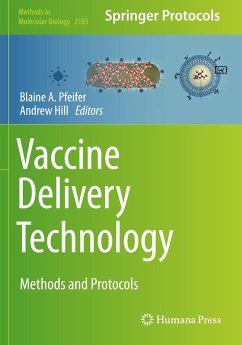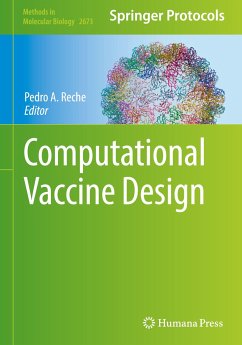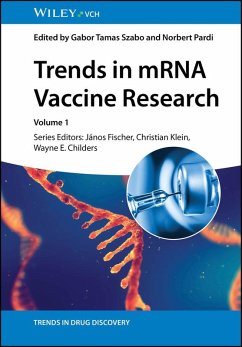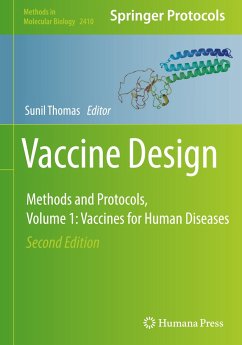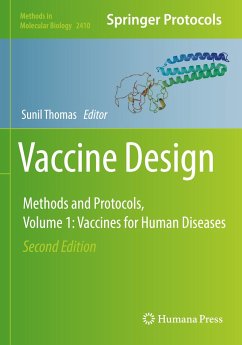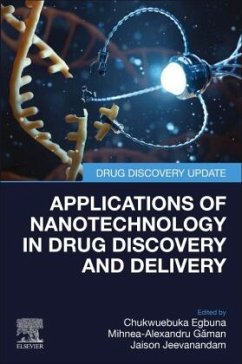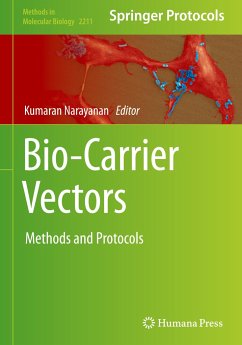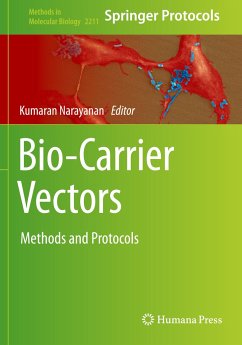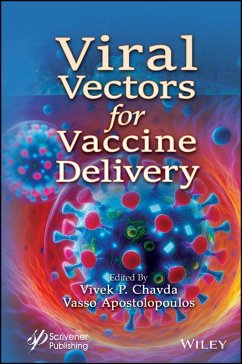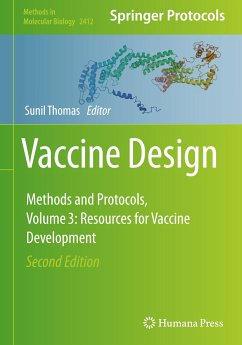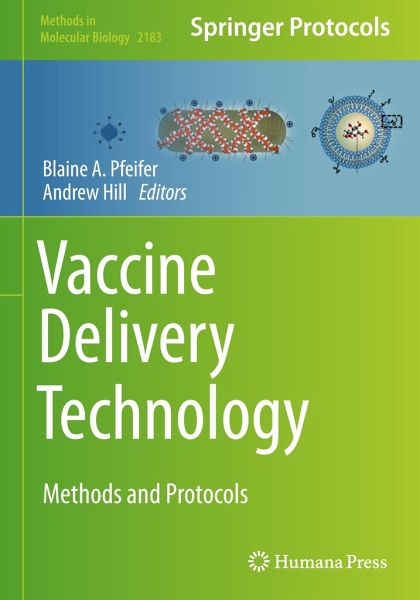
Vaccine Delivery Technology
Methods and Protocols
Herausgegeben: Pfeifer, Blaine A.; Hill, Andrew

PAYBACK Punkte
76 °P sammeln!
This volume discusses the vaccine development process and the role delivery concepts contribute to a global goal of effective health outcomes. The chapters in this book cover a wide range of topics such as antigen discovery methods; genetic and protein antigen preparation; preparation of viral vaccines as VLPs; viral and non-viral gene delivery; needle-less or non-invasive delivery technology; vaccine storage; and vaccine administration and assessment. Written in the highly successful Methods in Molecular Biology series format, chapters include introductions to their respective topics; lists o...
This volume discusses the vaccine development process and the role delivery concepts contribute to a global goal of effective health outcomes. The chapters in this book cover a wide range of topics such as antigen discovery methods; genetic and protein antigen preparation; preparation of viral vaccines as VLPs; viral and non-viral gene delivery; needle-less or non-invasive delivery technology; vaccine storage; and vaccine administration and assessment. Written in the highly successful Methods in Molecular Biology series format, chapters include introductions to their respective topics; lists of the necessary materials and reagents; step-by-step, readily reproducible laboratory protocols; and tips on troubleshooting and avoiding known pitfalls.
Cutting-edge and practical, Vaccine Delivery Technology: Methods and Protocols is a valuable resource for both novice and expert researchers, in and outside the field, who would like to gain insight into the impactful fieldof vaccines.
Chapter 7 is available open access under a Creative Commons Attribution 4.0 International License via link.springer.com.
Cutting-edge and practical, Vaccine Delivery Technology: Methods and Protocols is a valuable resource for both novice and expert researchers, in and outside the field, who would like to gain insight into the impactful fieldof vaccines.
Chapter 7 is available open access under a Creative Commons Attribution 4.0 International License via link.springer.com.





